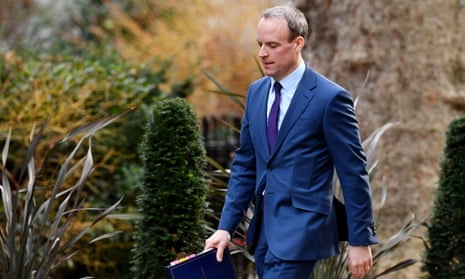Justice delayed, they say, is justice denied. After a decade of underfunding and two years of the pandemic, courts in England and Wales are grinding to a halt. Dominic Raab, the lord chancellor, thinks there’s no quick fix for the criminal legal aid sector. Mr Raab claimed instead that he would take his time to get things right. The evidence suggests that he is getting things wrong.
The backlog in crown courts, which hear the most serious cases, now stands at more than 59,000 cases, up on both before and since the onset of Covid-19. These include rape and sexual offence cases – in which the moving or rescheduling of trials at the last minute causes needless distress. Not only is the backlog lengthening, but the law is taking longer to run its course. As the average wait between crime and verdict in crown courts increases, so does the probability that a case collapses as victims drop out. Prior to the pandemic, defendants waiting to plead their innocence or victims desperate for their day in court could expect it to take a year and two months to see justice done. It’s now almost two years.
Mr Raab says that he wants “swifter justice”. But his words are belied by his actions. He has managed to secure only enough Treasury cash to reduce the backlog to 53,000 cases by March 2025, a tally still higher than before the pandemic. Even this modest target looks unachievable thanks to a decade of running down the criminal courts system. About a quarter of junior barristers have left criminal practice in the past five years along with nearly half of all silks.
The system is in such disarray that in almost 200 cases between July and September last year, a barrister could not be found for either prosecution or defence. Little surprise that during this period the number of trials postponed was 29% more than the number of trials completed. Matters came to a head this week when criminal barristers in England and Wales voted overwhelmingly to take industrial action. Mr Raab suddenly put out his response to last November’s independent review into criminal legal aid with a pay increase for barristers.
While the extra cash is welcome, it’s too little, too late. The Criminal Bar Association thinks its members might get £100 a week extra, which might sway some barristers but probably not enough to stop the planned disruption. Mr Raab’s offer also contained a mechanism to undercut lawyers’ fees. Legal practitioners have waited nearly four years since an independent review into criminal legal aid was first committed to by ministers to get this deal. That the new funding won’t be implemented until the autumn only adds insult to injury.
Last month, the lord chief justice – the most senior judge in England and Wales – made a rare public plea for Mr Raab to value the courts. “They must be properly funded in a way that leaves behind the notion that they are no more than an ordinary public service,” said Lord Burnett. Sadly, Mr Raab shows no sign of sharing this admirable sentiment.
